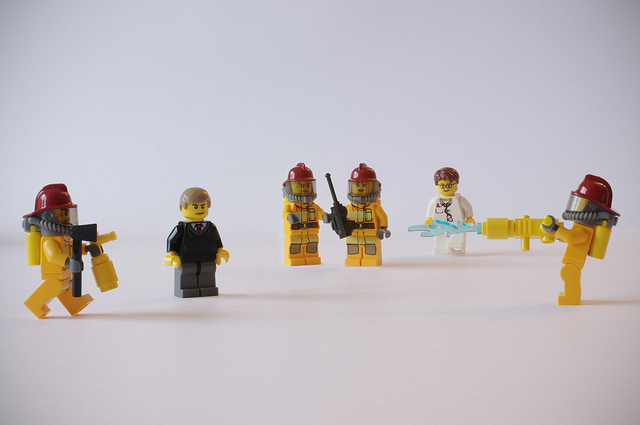I like crises. Mind you, I don’t like being in them; I just like reading about them and thinking about how I might manage them. I don’t read Stephen King novels, but I suppose the effect is the same.
You, too, should think about crises because, knock on wood, you are likely to find yourself in one at some point in your public-leadership career if you haven’t already. And these things go better with a little forethought.
So, what is a crisis? You may have your own definition, but mine is that they are unexpected events that seem to defy the standard solutions and must be dealt with immediately. It’s the middle part that makes them so scary: For a time at least, the normal processes don’t work. You can imagine what fits this description: natural disasters, riots, system breakdowns (think back to this summer’s Toledo water crisis), economic disruptions (say, a major local employer shutting down), and scandals.
So what do you do when business as usual breaks down? You work hard to restore order, promise a full inquiry into what went wrong, and speak directly, clearly, and fully to three audiences: those dealing with the crisis, those most affected by it, and everyone else in your community.
This sounds simple but isn’t. That’s because, first, there’s no assurance what you do will work. You may have to try, fail, and try again. Second, you must speak to citizens and those working on the crisis without promising the unknowable (how and when the crisis will end). Finally, people around you will be demanding that you not say anything at all. After all, it’s a crisis. Why are you standing in front of TV microphones? Oh, and by the way, they’ll tell you, there are bound to be legal consequences, so it really is better to keep your mouth shut.
Ignore them. The difference between private management and public management is the public part. As a result, what you say to citizens about the crisis and your efforts to resolve it is every bit as important as what you do. In fact, I would argue that having someone in charge who is thinking about what he or she will say in public an hour later makes for better decision making.
So the first thing you can do to prepare for your first crisis is to think about how order might be restored in a range of calamities. The second thing is to think about how you would communicate these things to a frightened or angry public.
The third thing is to get to know those you’ll depend on in these situations—police, fire, public works, civil defense, key city hall staff (including communications staffers), disaster-relief organizations, and so on. If you’re in a position to do so, suggest mock disaster exercises. (One reason then-New York Mayor Rudolph Giuliani was so cool headed on Sept. 11 was that he, his staff, and the police had practiced for disasters.)
Finally, you can build relationships in areas where, if worse comes to worst, you may need help: minority communities, charitable organizations, faith communities, and so on. In almost any major crisis, you’ll need these groups’ support and assistance, but in a particular type of crisis their support will be critical. That’s when government itself is seen as the cause of the crisis (think Ferguson, Missouri or a city hall scandal). In these cases, you’ll need friends in a hurry. Do you have a list of community leaders who’ll stand behind you on a podium as you explain your actions? If not, it’s time to get busy.
A version of this posting appeared on the Governing website.
Photo by Lieven Van Melckebeke licensed under Creative Commons.

